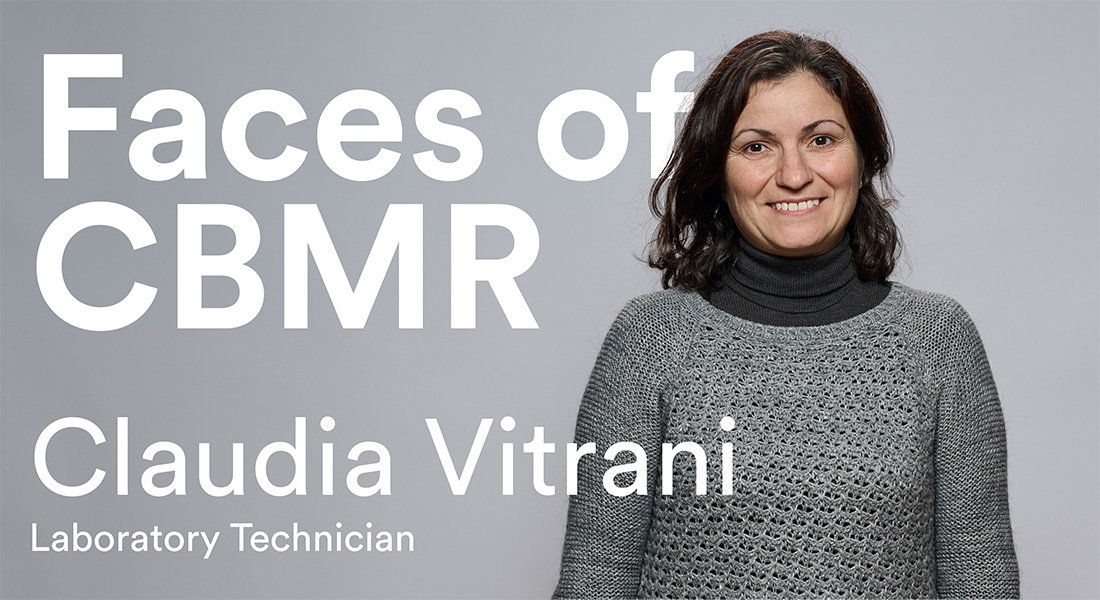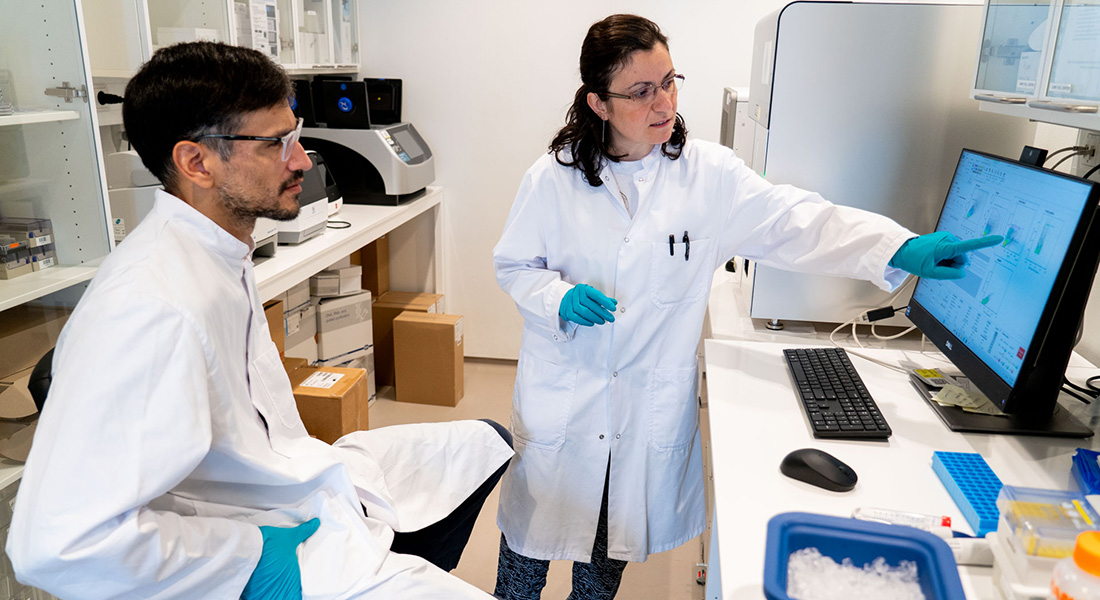“Scientists are a bit like artists, they are very passionate about what they do”
Claudia Vitrani from Italy worked as a pianist and opera coach before she decided to make a career change. Now, Claudia is a laboratory technician for the Single-Cell Omics Platform (SCOP) at CBMR, providing services in single-cell sequencing to researchers. We asked her about her career change, the similarities between science and art jobs, and the satisfaction of helping scientists further their projects.

How did you get interested in science?
I have always liked science, and I went to a high school focused on math, physics, and biology. Science and music are my two big interests, but I initially chose music as a career.
Why did you decide to switch to a science profession?
I met my husband when I worked at the Royal Danish Theatre. We realised that the logistics of family life did not mix well with both of us working at the theatre, mainly because of the working hours. I had also started experiencing back problems due to playing the piano several hours a day for many years, so it was time for a change. It seemed like a great opportunity to explore my interest in science. But music is still a big part of my life, and both my kids play music.
What did you study in Copenhagen?
I read about the lab technician programme at Copenhagen Business Academy and thought it was perfect for me. I had to complete a Danish course to do the programme, though, so I did that while working at the theatre before I started studying to become a lab technician.
How did you get the job as a lab technician at CBMR?
Near the end of my education, I was in training at the Biocentre at the University of Copenhagen. I worked with molecular biology and techniques I really liked, but I was set to start another job doing something very different. I saw that SCOP at CBMR needed a lab technician within these areas I enjoyed, so I applied and was lucky enough to get it.

What services does the Single-Cell Omics Platform (SCOP) provide for CBMR?
The SCOP offers researchers at CBMR access to single-cell techniques, along with guidance, data processing, and other services that they might need for their projects. With single-cell sequencing, we can analyse everything from genomes to nuclei functions. We can isolate individual cells, either from mice or humans, and see how they behave in different circumstances, for example with sickness or treatment. After the sequencing process, the researchers get all the data from us. We work with all kinds of researchers and projects at CBMR – it’s very exciting to be part of.
You are one of two LEAF (Laboratory Efficiency Assessment Framework) representatives in SCOP working to make CBMR and SCOP more sustainable. What are some of your initiatives in this regard?
Lab work is not very sustainable, so we try to optimise some of our protocols. We try to use less plastic, reduce waste, and reuse where we can. We also look to become more energy efficient with IT and other electronics. There are still strict standards to adhere to in the lab, but even small changes matter, and the different departments inspire each other. Living sustainably means a lot to me personally, so it’s great to be able to bring it into my professional life as well.
Have you noticed any similarities between working in music and working in science?
Yes, there are some similarities. In both fields, it’s very important to be accurate – even the smallest details are important. A good sense of structure is also essential.
What is your favourite thing about your job?
I like the atmosphere and the internationality at CBMR, and I especially enjoy helping many different kinds of scientists with their projects. Scientists are a bit like artists, I have found. It’s a sort of lifestyle because they dedicate their life to it and are very passionate about what they do.
Career-wise, what hopes do you have for the future?
I’m very happy where I am right now. So, I think I would just hope to keep on doing my job well and continue getting more experience helping people the best I can.
What piece of classical music would you recommend scientists to listen to?
That’s a tough question. If I had to choose, I would recommend anyone, scientist or otherwise, to listen to Beethoven’s Piano Concerto No. 5. It’s a magnificent piece of music and one I always come back to.
This interview was edited for clarity and concision.
